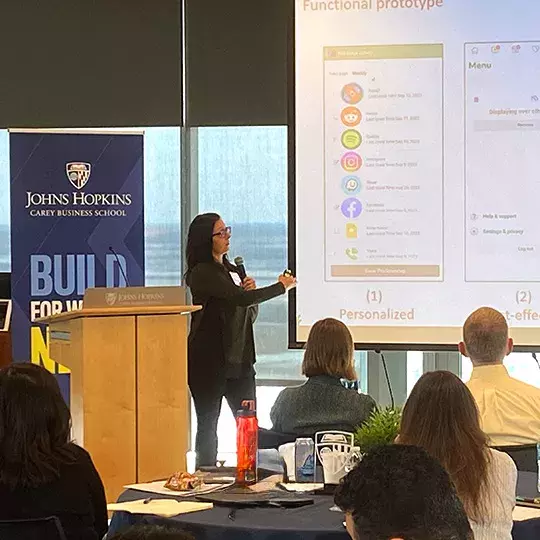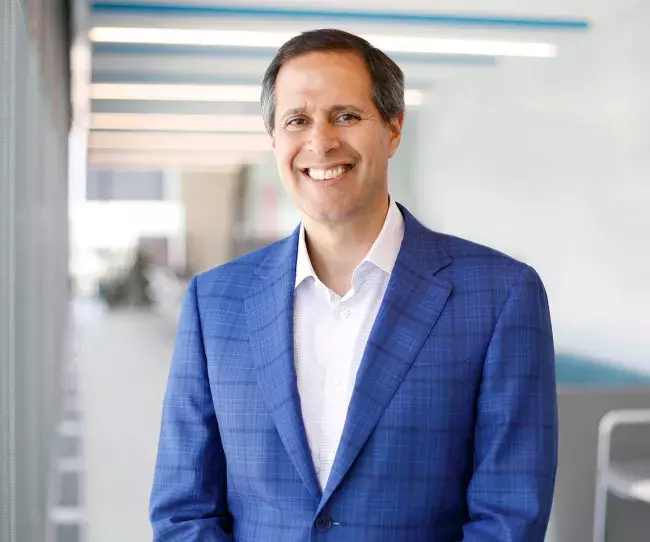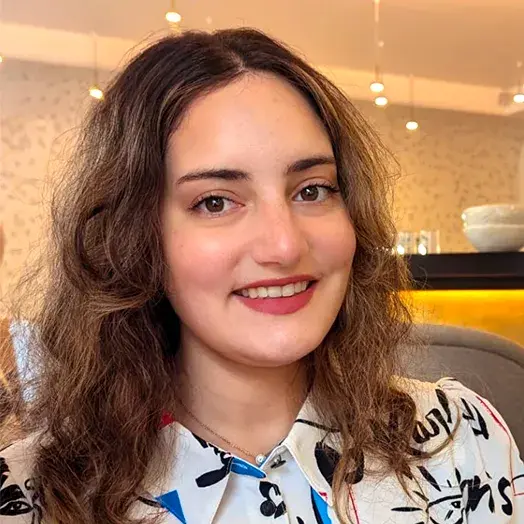The Innovations for Substance Use Disorders program at Johns Hopkins Carey Business School helps substance use disorders researchers transform ideas into scalable products.

Carey Business School course helps scientists turn discoveries into action
A medication to treat cocaine addiction. An app to reward smokers for steps in their path toward quitting. A genetic screening test to customize treatment for substance use disorder.
They’re all breakthrough ideas from researchers whose discoveries could become marketable solutions in a field that’s been largely unchanged for years. The only thing standing in the way is the knowledge to turn those discoveries into scalable products. The highly specialized Innovations for Substance Use Disorders program at Johns Hopkins Carey Business School is how the researchers are gaining it.
“The I4SUD program is an incredible opportunity for scientific researchers who want to translate research from their lab and bring it to the marketplace, where it can directly impact patient outcomes,” said program leader Supriya Munshaw, associate professor of practice and associate dean for Academic Programs at Carey Business School. “Our participants are highly accomplished researchers in the substance use disorders field, and this program exposes them to business fundamentals that will change how they think about their research.”
The program, developed in collaboration with Johns Hopkins School of Medicine faculty and supported by a five-year, $1.6 million grant from the National Institutes of Health’s Institute on Drug Abuse, helps create a pathway for substance use disorder researchers to bring innovations to market.
On its first offering, the eight-week course attracted over 80 applicants and accepted 30. The course included seven weeks of online learning and a four-day visit to Baltimore. While in Baltimore, participants visited local recovery centers including the Helping Up Mission, the REACH Methadone Clinic, Ashley Addiction Treatment, and the Broadway Center to better understand the needs of individuals with substance use disorders. The culminating event was a pitch competition in which the winner earned a $10,000 grant to support their initiative.
Morgan James, an assistant professor of psychiatry at Rutgers University, identified a molecule he says could be the basis for medications to treat cocaine addiction. Currently, no medications are available. "Most of us are bench-based scientists, or we work in an academic institution and don't have a great grasp on the commercialization of technologies that we develop in our research. We're not trained to think like this," he said. "Here we're trying to think maybe there's commercial utility to these discoveries and how to progress along that journey."
“The I4SUD program is an incredible opportunity for scientific researchers who want to translate research from their lab and bring it to the marketplace, where it can directly impact patient outcome. Our participants are highly accomplished researchers in the substance use disorders field, and this program exposes them to business fundamentals that will change how they think about their research.”
Supriya Munshaw, Associate professor of practice and associate dean for Academic Programs
Washington State University Assistant Professor Crystal Smith proposed a genetic screening test to customize treatment options for individuals with substance use disorders. She, too, found the I4SUD program rewarding.
"We've made awesome connections with other students and keeping in touch,” she said. “We'll be collaborating on research and on business in the future. It's been amazing."
Ultimately, the pitch prize went to Bethany Raiff, a professor of psychology at Rowan University whose mobile phone app would help patients stick to smoking cessation goals. The app "rewards" users with previously restricted access to mobile games, social media, and online shopping experiences. "Just being here and networking was an incredible opportunity,” said Raiff. “I would have been perfectly happy if that's as far as I got, and that was hugely valuable. And then there was the educational component, learning online different modules from all these experts. I don't have any business background at all, so this is completely new to me."
Raiff says the next step is to build the app with colleagues at the University of Kentucky and to test it with actual users.
What to Read Next

business of health
‘Mobility matters’: Using remote tracking to predict hospital readmissionThe NIH defines a substance use disorder as a mental condition that affects a person's brain and behavior, leading to the inability to control the use of substances, including illegal drugs, alcohol, and medications.
About 27 million people in the United States report using illegal drugs or misusing prescription drugs. The U.S. Surgeon General’s Office estimates the economic impact of misuse at $193 billion. NIDA estimates that only about 10 percent of people in the U.S. who have been diagnosed with a substance use disorder within the last year received any treatment.
I4SUD will resume in fall 2024, with enrollment opening in the spring. Check the I4SUD site and social media for updates.


